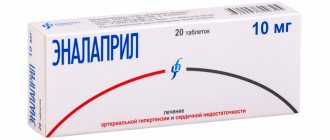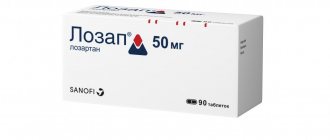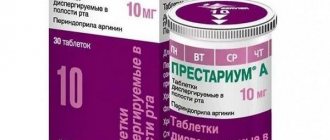Home | About us | Delivery | Advertisers | Login | Registration
- Medicines
- dietary supplementsVitamins
- Categories from A to Z
- Brands from A to Z
- Products from A to Z
- Medical equipment
- beauty
- Child
- Care
- Honey products appointments
- Herbs and herbal teas
- Medical nutrition
- Journey
- Making medicinesStock
Pharmacy online is the best pharmacy in Almaty, delivering medicines to Almaty. An online pharmacy or online pharmacy provides the following types of services: delivery of medicines, medicines to your home. Online pharmacy Almaty or online pharmacy Almaty delivers medicines to your home, as well as home delivery of medicines in Almaty.
my basket
Apteka84.kz is an online pharmacy that offers its customers medicines, medicinal and decorative cosmetics, dietary supplements, vitamins, baby food, intimate products for adults, medical equipment and thousands of other medical and cosmetic products at low prices. All data presented on the Apteka84.kz website is for informational purposes only and is not a substitute for professional medical care. Apteka84.kz strongly recommends that you carefully read the instructions for use contained in each package of medicines and other products. If you currently have any symptoms of the disease, you should seek help from a doctor. You should always tell your doctor or pharmacist about all the medicines you take. If you feel you need further help, please consult your local pharmacist or contact our GP online or by telephone.
© 2021 Pharmacy 84.
Instructions for use CANDESARTAN-NAN
Renal dysfunction
As with the use of other drugs that suppress the RAAS, during therapy with Candesartan-NAN, renal function may be impaired in patients predisposed to this.
When using the drug Candesartan-NAN in patients suffering from arterial hypertension and impaired renal function, it is recommended to periodically monitor the concentration of potassium and creatinine in the blood serum. Experience with the drug in patients with very severe renal impairment or end-stage renal failure (creatinine clearance <15 ml/min) is limited. In this category of patients, the dose of Candesartan-NAN should be increased with caution against the background of constant blood pressure monitoring.
In patients with heart failure, renal function should be periodically monitored, especially in patients aged 75 years and older and in patients with impaired renal function. When increasing the dose of the drug, it is also recommended to monitor the concentration of potassium and creatinine in the blood serum. Clinical studies in patients with chronic heart failure excluded individuals with serum creatinine concentrations >265 µmol/L (>3 mg/dL).
The simultaneous use of Candesartan-NAN with aliskiren is contraindicated in patients with renal failure (GFR <60 ml/min/1.73 m2).
Double blockade of the RAAS
Dual blockade of the RAAS is associated with an increased risk of hypotension, hyperkalemia and renal dysfunction (including acute renal failure) compared with monotherapy. Dual blockade of the RAAS using ACE inhibitors, angiotensin II receptor antagonists (candesartan) or aliskiren cannot be recommended in any patient, especially in patients with diabetic nephropathy. In some cases, when the combined use of ACE inhibitors and angiotensin II receptor antagonists (candesartan) is absolutely indicated, careful supervision by a specialist and mandatory monitoring of renal function, water-electrolyte balance, and blood pressure are necessary. This applies to the use of candesartan or valsartan as adjunctive therapy to ACE inhibitors in patients with chronic heart failure. Carrying out double blockade of the RAAS under the careful supervision of a specialist and mandatory monitoring of renal function, water-electrolyte balance and blood pressure is possible in patients with chronic heart failure with intolerance to aldosterone antagonists (spironolactone), who have persistent symptoms of chronic heart failure, despite adequate therapy.
Hemodialysis
During hemodialysis, as a result of a decrease in blood plasma volume and activation of the RAAS, the ability of angiotensin II receptor antagonists to influence blood pressure may significantly increase. Therefore, in patients on hemodialysis, the dose of the drug should be increased carefully while constantly monitoring blood pressure.
Renal artery stenosis
Medicines affecting the RAAS, incl. Angiotensin II receptor antagonists may cause increases in serum urea and creatinine concentrations in patients with bilateral renal artery stenosis or arterial stenosis of a solitary kidney.
Kidney transplant
There is no experience with the use of the drug in patients who have recently undergone a kidney transplant.
Arterial hypotension
In patients suffering from heart failure, arterial hypotension may develop during drug therapy. It is also possible to develop arterial hypotension in patients with hypertension and intravascular fluid volume deficiency, for example in patients receiving high doses of diuretics. In such patients, caution should be exercised at the beginning of therapy and, if necessary, correction of hypovolemia should be carried out.
Anesthesia and surgery
In patients receiving angiotensin II receptor antagonists, arterial hypotension may develop during general anesthesia and during surgery due to blockade of the RAAS. In very rare cases, cases of severe arterial hypotension may occur, requiring IV fluids and/or vasoconstrictors.
Aortic and mitral valve stenosis, obstructive hypertrophic cardiomyopathy
As with other vasodilators, special caution should be used in patients with hemodynamically significant aortic or mitral valve stenosis or obstructive hypertrophic cardiomyopathy.
Primary hyperaldosteronism
Patients with primary hyperaldosteronism are usually resistant to treatment with antihypertensive drugs that affect the RAAS. Therefore, Candesartan-NAN is not recommended for use in such patients.
Hyperkalemia
The simultaneous use of Candesartan-NAN and potassium-sparing diuretics, potassium preparations, salt substitutes containing potassium, and other drugs that can increase the concentration of potassium in the blood serum (for example, heparin) may lead to the development of hyperkalemia. In such cases, it is necessary to monitor the potassium content in the blood serum.
In patients suffering from heart failure, hyperkalemia may develop during therapy with Candesartan-NAN. Periodic monitoring of serum potassium concentration is recommended. The combination of ACE inhibitors, potassium-sparing diuretics (for example, spironolactone) and the drug Candesartan-NAN is not recommended and should only be prescribed after a careful assessment of the potential benefits and possible risks.
General instructions
Patients whose vascular tone and renal function are predominantly dependent on the activity of the RAAS (for example, patients with severe congestive heart failure or concomitant renal diseases, including renal artery stenosis), treatment with other drugs that affect the RAAS were accompanied by acute arterial hypotension, azotemia, oliguria and, less commonly, acute renal failure. The possibility of developing these effects cannot be excluded when using angiotensin II receptor antagonists. As with the use of any other antihypertensive drugs, a sharp decrease in blood pressure in patients with coronary artery disease or cerebrovascular diseases of atherosclerotic origin can lead to myocardial infarction or stroke.
Special information on excipients
Candesartan-NAN contains lactose, so the drug is not recommended for use in patients with lactase deficiency, galactosemia or glucose-galactose malabsorption syndrome.
Use in pediatrics, including patients with renal impairment
The use of candesartan has not been studied in children with GFR <30 ml/min/1.73 m2.
Impact on the ability to drive vehicles and operate machinery
No studies have been conducted to evaluate the effect of the drug on the ability to drive a car or operate machinery. When driving or operating machinery, the possibility of dizziness or weakness should be taken into account. During the treatment period, patients must be careful when driving vehicles and engaging in other potentially hazardous activities that require concentration and speed of psychomotor reactions.
KANDESARTAN-SZ
special instructions
Impaired renal function
During therapy with Candesartan-SZ, as with the use of other drugs that inhibit the renin-angiotensin-aldosterone system, some patients may experience impaired renal function.
When using the drug Candesartan-SZ in patients with arterial hypertension and severe renal failure, it is recommended to periodically monitor the concentration of potassium and creatinine in the blood serum. Clinical experience with the drug in patients with severe renal impairment or end-stage renal failure is limited (creatinine clearance less than 15 ml/min).
In patients with chronic heart failure, renal function should be periodically monitored, especially in patients aged 75 years and older, as well as in patients with impaired renal function. When increasing the dose of Candesartan-SZ, it is also recommended to monitor the concentration of potassium and creatinine.
Clinical studies of the drug in chronic heart failure did not include patients with creatinine concentrations > 265 µmol/l (> 3 mg/dl).
Combined use with ACE inhibitors in chronic heart failure
When using candesartan in combination with ACE inhibitors, the risk of side effects may increase, especially renal dysfunction and hyperkalemia (see section "Side effects"). In these cases, careful observation and monitoring of laboratory parameters is necessary.
Renal artery stenosis
In patients with bilateral renal artery stenosis or arterial stenosis of a solitary kidney, drugs that affect the renin-angiotensin-aldosterone system, in particular ACE inhibitors, may cause an increase in serum urea and creatinine concentrations. Similar effects can be expected when prescribing angiotensin II receptor antagonists.
Kidney transplant
Data on the use of Candesartan-SZ in patients who have undergone kidney transplantation are limited.
Arterial hypotension
In patients with chronic heart failure during therapy with Candesartan-SZ, arterial hypotension may develop. As with other drugs that affect the renin-angiotensin-aldosterone system, the cause of arterial hypotension in patients with arterial hypertension may be a decrease in circulating blood volume, as observed in patients receiving high doses of diuretics. Therefore, at the beginning of therapy, caution should be exercised and, if necessary, correction of hypovolemia should be carried out.
Double blockade of the renin-angiotensin-aldosterone system when using drugs containing aliskiren
Dual blockade of the renin-angiotensin-aldosterone system by combining candesartan cilexetil and aliskiren is not recommended due to the increased risk of arterial hypotension, hyperkalemia and changes in renal function.
The use of candesartan cilexetil in combination with aliskiren is contraindicated in patients with diabetes mellitus (type 1 or 2) or with moderate or severe renal impairment (glomerular filtration rate <60 ml/min/m) (see section "Contraindications").
General anesthesia and surgery
In patients receiving angiotensin II antagonists, hypotension may develop during general anesthesia and during surgery as a result of blockade of the renin-angiotensin system. Very rarely, severe hypotension requiring intravenous fluids and/or vasopressors may occur.
Aortic and mitral valve stenosis or obstructive hypertrophic cardiomyopathy
When prescribing Candesartan-SZ, like other vasodilators, patients with obstructive hypertrophic cardiomyopathy or hemodynamically significant stenosis of the aortic or mitral valve should be careful.
Primary hyperaldosteronism
Patients with primary hyperaldosteronism are usually resistant to treatment with antihypertensive drugs that affect the renin-angiotensin-aldosterone system. In this regard, the drug Candesartan-SZ is not recommended for such patients.
Hyperkalemia
Clinical experience with other drugs that affect the renin-angiotensin-aldosterone system shows that the simultaneous administration of Candesartan-SZ with potassium-sparing diuretics, potassium supplements or salt substitutes containing potassium, or other drugs that can increase potassium levels in the blood (for example , heparin) may lead to the development of hyperkalemia in patients with arterial hypertension.
In patients with chronic heart failure during therapy with Candesartan-SZ, hyperkalemia may develop. When prescribing Candesartan-SZ to patients with chronic heart failure, regular monitoring of potassium concentrations in the blood is recommended, especially when co-administered with ACE inhibitors and potassium-sparing diuretics, such as spironolactone.
Are common
Patients whose vascular tone and renal function are primarily dependent on the activity of the renin-angiotensin-aldosterone system (for example, patients with severe chronic heart failure or kidney disease, including renal artery stenosis) are especially sensitive to drugs that act on the renin-angiotensin-aldosterone system. system. The prescription of such drugs is accompanied in these patients by severe arterial hypotension, azotemia, oliguria and, less commonly, acute renal failure. The possibility of developing the listed effects cannot be excluded when using angiotensin II receptor antagonists. A sharp decrease in blood pressure in patients with coronary heart disease or cerebrovascular diseases of atherosclerotic origin, when using any antihypertensive drugs, can lead to the development of myocardial infarction or stroke.



